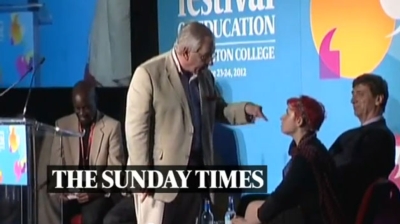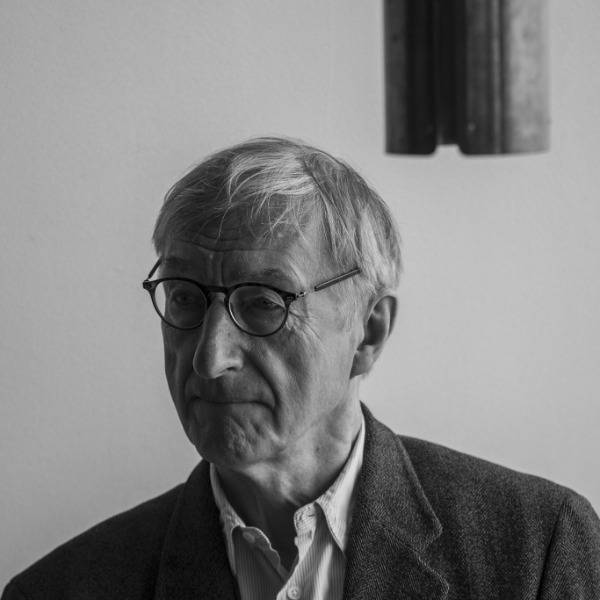
There are potentially two problems when you debate someone like Starkey. The first problem is that your fury at his opinions is so great that it becomes impossible to control your rage and consequently your argument. The second problem is that you will receive pressure from friends and colleagues to get him into intellectual checkmate, to bewilder him so thoroughly that he will utter a quote of wholly toxic prejudice. Fortunately Starkey doesn’t make me all that angry. He and Jeremy Clarkson are from the same school of pantomime polemic, which is to respond to outcry at his musings with even more inflammatory remarks. Furthermore, I think that Starkey is far too intelligent to say anything about race that he does not absolutely wish to. The more realistic goal, I thought, would be to prise apart his logic as often as possible.
The day of the debate came. To illustrate what I saw as an ideal of Britishness, I stood and gave a short talk about a Jubilee street party that I had attended in Walthamstow; where we had gathered not so much to celebrate the Queen, but to feel a sense of community. Starkey went to the podium next, and spoke without notes; though he confessed that he had liked my prose, he considered my talk to be “floppy” on content and noted that the type of multiracial utopia that I had described did not exist outside London. He also argued that Britishness was an artificial creation, which had only been around since the 1707 Act of Union with Scotland, and as such it was not the best tool to express the character of our nation.
Vivian Bickford-Smith spoke next, giving his thoughts on the nature of national identity, and then Laurie Penny stepped forward to speak. She criticised Starkey for what she saw as his attempts to play xenophobia for laughs. I didn’t know what she was referring to at the time, but in an earlier session, which I had not attended, she had heard Starkey comment that the gang of men from Rochdale who had been jailed for the sexual abuse of children had values which were “entrenched in the foothills of the Punjab”. She then moved on to make a point that I thought was one of the most compelling of the evening: that the rhetoric about Britishness, with its emphasis that we are all pulling together, is a salve for the growing inequalities and class issues that beset modern Britain. I thought that this was a fruitful line of enquiry.
David Goodhart, who was chairing the debate, was not so keen on Penny’s take, and questioned her “neo-Marxist” take on our society. All pretty spiky so far, but still relatively civil. But that’s when it all became a bit Punch and Judy. Starkey continued to advance his argument, during which Penny noted that he had a house in the United States and then asked him where, in the light of his vigorous patriotism, he was domiciled for tax purposes. Incensed at her question, Starkey then rose to his feet and told a story about an event at the “impoverished” Thomas Paine Society where he and Penny had both been booked to speak. He said that he had agreed to speak free of charge, but that Penny had requested such a large sum of money that the society had had to cancel the event. Penny contested his version of events, while adding that she was not earning particularly good money and was entitled to be paid for her time (The Thomas Paine Society have since responded, comtrdicting Starkey's version of events). Blood was now up. Starkey approached her, angrily jabbing his finger in her direction, and called her a “jumped-up public school girl”. The debate had long since descended into acrimony, and ended soon afterwards.
At first I was bemused by all this, but later my frustration set in. Looking back on it all, Starkey’s Punjab comment might have fired me up if I’d heard it, but then again I have been in plenty of environments where I have heard such parlour prejudice, and by now am largely used to it. Penny was right to note it though. What got to me, in the end, was that the event succumbed to a clash of personalities.
Here’s the worst thing, though. Saturday represented a missed opportunity. For all Starkey’s quick wit and rhetorical polish – for he is a brilliant speaker, illustrating his points with numerous historical references – I thought that several of his arguments were curiously hollow. When I pressed him, he failed to acknowledge the British Isles’ long history of integration, reaching back to the Normans and Romans, Angles and Saxons. In support of one of his arguments he cited France as a country that had achieved a collective conception of national identity, despite the deep racial tensions running through its society. But I didn’t have time to question him on these and other points.
When I mentioned I would be debating Starkey, some of my friends were incredulous that he was being given a platform. The thing is that, as unpalatable as many people may find his views, he has plenty of support for them; one look at the comments beneath a recent Daily Mail article tells me that. Personally I was grateful for the rare chance to make my case against him. Given how polite Starkey was to me after the debate, I think that he is actually just enjoying the notoriety that his comments provide. He has a public persona and a private one, and the two are very different. Onstage though, he and Penny played their parts in a regrettable piece of theatre, which overshadowed the very real issues at hand. And so it was that I returned home, frustrated, with a notepad of unused rebuttals.

